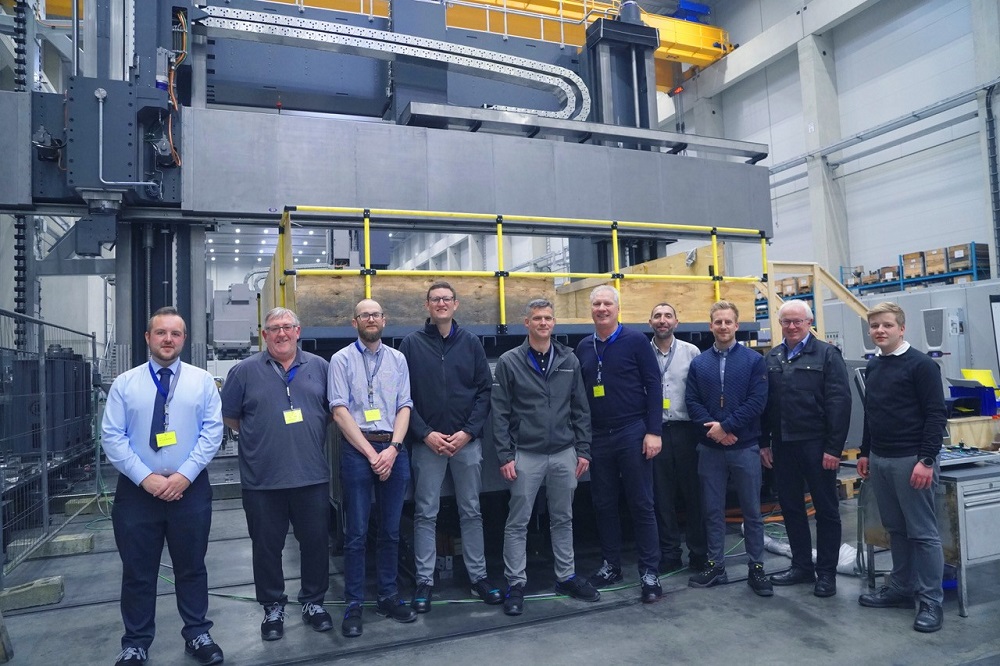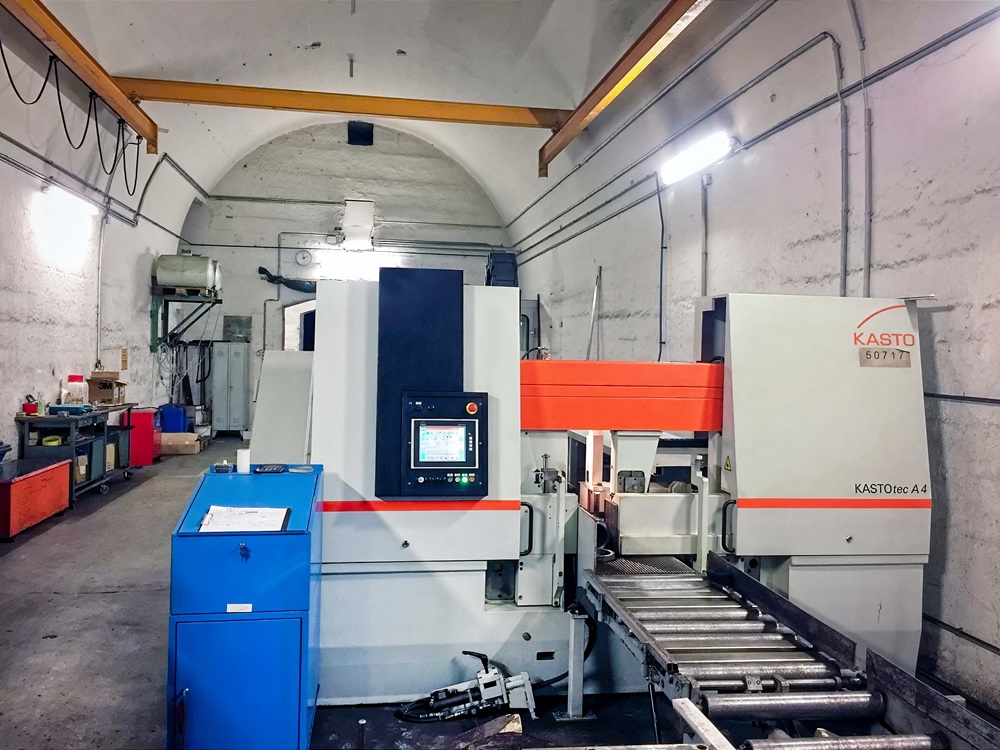Schwarzwald Eisen has successfully responded to the increasing demands of the steel market by installing a saw-drill combination machine, a shot-blasting system and an automated transport system. Working closely with machine provider Kaltenbach ensured quick and efficient project was implementation. Permanent support from the service helpdesk keeps the system up and running, and demonstrates the reliability of Kaltenbach solutions, which steel supplier Schwarzwald Eisen has been relying on for over 20 years.
The old system was dismantled and the new one installed in a very short time. To integrate the machines into the production hall in the optimal way, special attention was paid to a space-saving and effective arrangement of the saw-drill combination (KDP 736 and KBP 701), blasting (GIETART ECO Blaster 1504) and transport systems (roller conveyors with cross transports).
As a whole, the system saws, drills, mills, blasts and cleans a variety of different profiles required in steel processing. Processing quality is assured for both small and large dimensions. The Kaltenbach transport system connects the individual work steps with each other to achieve a continuous and efficient material flow. On top of this, Kaltenbach offers support from qualified service technicians at any time via the helpdesk. The remote diagnosis option in particular allows the company to react quickly in the event of a fault and ensure operational readiness.
“Since the commissioning of our first Kaltenbach sawing system over 20 years ago in Lahr, we’ve always trusted in the quality and reliability of the machines,” says Alexander Hatt
CEO of Schwarzwald Eisen. “Installing further systems in Freiburg and the consistently positive experience with the service and help desk have confirmed our decision to rely on Kaltenbach.”
More information www.kaltenbach.com



















